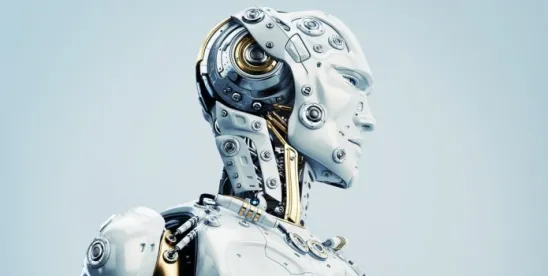Advancements in artificial intelligence (AI) technology are impacting mental health and wellness with tools that are right at the user’s fingertips. Innovators are developing new ways to bring these technologies directly to the user, and investors and strategic partners are paying attention. According to Crunchbase, in 2020 there was a 112% increase in total investments in mental-health-focused startups compared to 2019.
Mental health and wellness has been a topic of conversation in many arenas, including the recent discussions around tennis star Naomi Osaka and gold medal gymnast Simone Biles. But in the legal industry, mental health and wellness has been a topic of concern and conversation even before the pandemic began. With billable hour requirements, long hours, client demands, and increasing competition, attorneys at all levels may be impacted by the stress these factors may cause. Add on top of those the remote work, isolation, and disruption of routine many of us have experienced during the pandemic, and it is easy to see why seeking mental health and wellness services is more prevalent than ever before.
As a technology attorney for more than two decades, I am fascinated by the innovation of technology companies to find solutions to problems we face. Here’s a look at a few areas where AI technology is being developed to address mental health and wellness.
Virtual Therapists
AI is helping to make therapy more accessible through chatbots. A chatbot is a computer program that simulates and processes human conversation (either written or spoken), allowing humans to interact with digital devices as if they were communicating with a real person. Chatbots can be as simple as providing a single-line response to a question or emulating a face-to-face conversation where the interaction is tailored to each individual situation.
Virtual therapists are on the rise due to the creation of chatbots. Through interactions over webcam and microphone, these virtual therapists can process and analyze the emotional cues from the user’s facial expressions as well as voice variations and tone. The virtual therapist is able to collect and process this information and deliver a personalized response to each user.
Emotional Diagnostics
Another way AI is being used to help improve mental health is through emotional diagnostics, which aim to identify emotional health concerns before they arise. “Smart journaling” is one example. Using an app to journal one’s day and thoughts, the AI captures the user’s state of mind. The AI can then provide real-time emotional analysis by identifying the mood the user is in, noting the emotions the user expressed through his/her journaling, and providing tips to help the user improve his/her mood. A “smart journaling” app can also be incorporated with an in-person therapist. The therapist can receive status updates and reports through the platform, allowing them to incorporate the data into live sessions. Emotional diagnostic AI tools are also being used to predict when a user may be at risk of falling into an addictive behavior and provide personalized treatment for that individual.
Even a smartphone can be used as an emotional diagnostic device to help with mental health and wellness by using digital phenotyping, the moment-by-moment, in situ quantification of the individual-level human phenotype using data from personal digital devices. Through examining a user’s phone-use patterns (typing, scrolling, etc.), an AI tool can measure and assess the user’s emotional state, predict emotional concerns before they arise, and provide the user with the right level of emotional support needed.
Motivational Applications
Fitness apps have been around for some time now, but a new trend in AI has added a motivational application to one’s online fitness journey. From apps where users can compete against one another in real-time, to those projecting a fitness coach in a room with the user, to those that provide levels of achievement or “rewards,” they are all aimed at motivating users to keep going.
For today’s generation, it’s that motivational and gamification aspect of the technology that can help to incentivize users to continue using these apps. But they also bring a sense of community, connectivity, and accomplishment, which can positively impact one’s mental health.
We can all benefit from the ease of access to these tools and technologies to enhance our wellness. With the increased development of AI for wellness, I am excited to see what’s to come.



 />i
/>i

